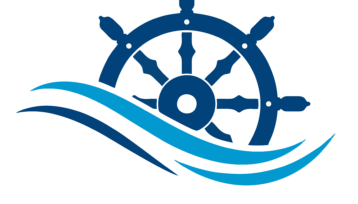Chief Engineer – Engine-Side
- Full time
- View on Map
- View(s) 400
Job Detail
-
Job ID 488
-
Offered Salary 1000
-
Experience 2 Years +
-
Gender Male
-
Industry Marine Engine-Side
-
Qualifications Certificate
Job Description
As the Chief Engineer in the Engine section, you will have overall responsibility for the operation, maintenance, and repair of the vessel’s propulsion and auxiliary machinery. You will lead the engineering team and ensure the efficient and safe functioning of the engine room. Here is a detailed job description for the position of Chief Engineer in the Engine section:
1. Leadership and Management:
– Provide leadership and direction to the engineering team, including engine officers, ratings, and fitters.
– Allocate responsibilities and supervise the maintenance, repair, and operation of all machinery in the engine room.
– Develop and implement maintenance schedules, work plans, and procedures to ensure optimal performance and reliability.
2. Operation and Maintenance:
– Oversee the operation and control of the vessel’s propulsion and auxiliary systems, including engines, generators, pumps, and HVAC systems.
– Monitor machinery performance, fuel consumption, and emissions to optimize efficiency and comply with environmental regulations.
– Conduct regular inspections and maintenance activities to ensure the integrity and reliability of the engine room equipment.
3. Repairs and Troubleshooting:
– Diagnose and troubleshoot complex mechanical, electrical, and hydraulic issues within the engine room.
– Coordinate and supervise repairs, overhauls, and replacements of components and systems.
– Collaborate with shore-based technical support and suppliers to source spare parts and specialized services.
4. Safety and Compliance:
– Ensure compliance with safety regulations, industry standards, and class requirements within the engine room.
– Implement and enforce safety procedures and risk mitigation measures to create a safe working environment.
– Conduct regular safety drills and provide training to the engineering team on emergency response procedures.
5. Documentation and Reporting:
– Maintain accurate records of machinery performance, maintenance activities, and spare parts inventory.
– Prepare reports on maintenance and repair work, fuel consumption, and equipment condition for management and regulatory authorities.
– Update technical documentation, drawings, and manuals to reflect modifications or upgrades.
6. Budget and Resource Management:
– Develop and manage the engineering department’s budget, including forecasting and cost control measures.
– Monitor and optimize fuel consumption, spare parts inventory, and maintenance expenses.
– Identify and recommend investments in new technologies or equipment to improve efficiency and reduce operational costs.
7. Collaboration and Communication:
– Coordinate with other departments, such as deck officers and catering, to ensure seamless vessel operations.
– Communicate effectively with the ship’s management, superintendents, and external stakeholders on technical matters.
– Foster a positive working environment and promote teamwork and professional development among the engineering team.
Requirements:
– Valid Chief Engineer’s Certificate of Competency as per STCW requirements.
– Extensive experience in marine engineering, including substantial sea time as an engineer officer.
– Strong technical knowledge of marine propulsion systems, auxiliary machinery, and related systems.
– In-depth understanding of engine room operations, maintenance practices, and relevant regulations.
– Leadership and management skills to effectively supervise and motivate a diverse engineering team.
– Excellent problem-solving and decision-making abilities, especially in emergency situations.
– Proficiency in using engine room monitoring and control systems, as well as computerized maintenance management software.
– Strong communication and interpersonal skills to liaise with stakeholders at various levels.
Please note that the specific job responsibilities and requirements for a Chief Engineer may vary depending on the type and size of the vessel, company policies, and trading area. Additionally, certification requirements and regulations may vary between countries and flag states.

